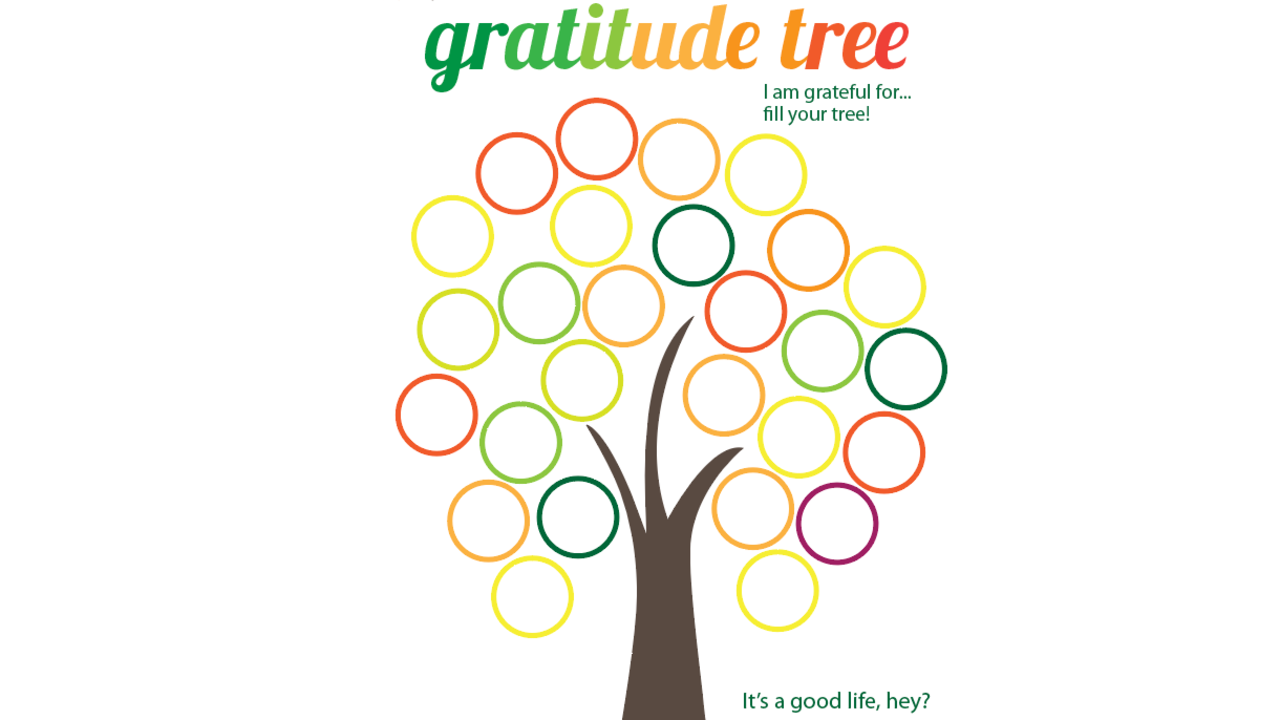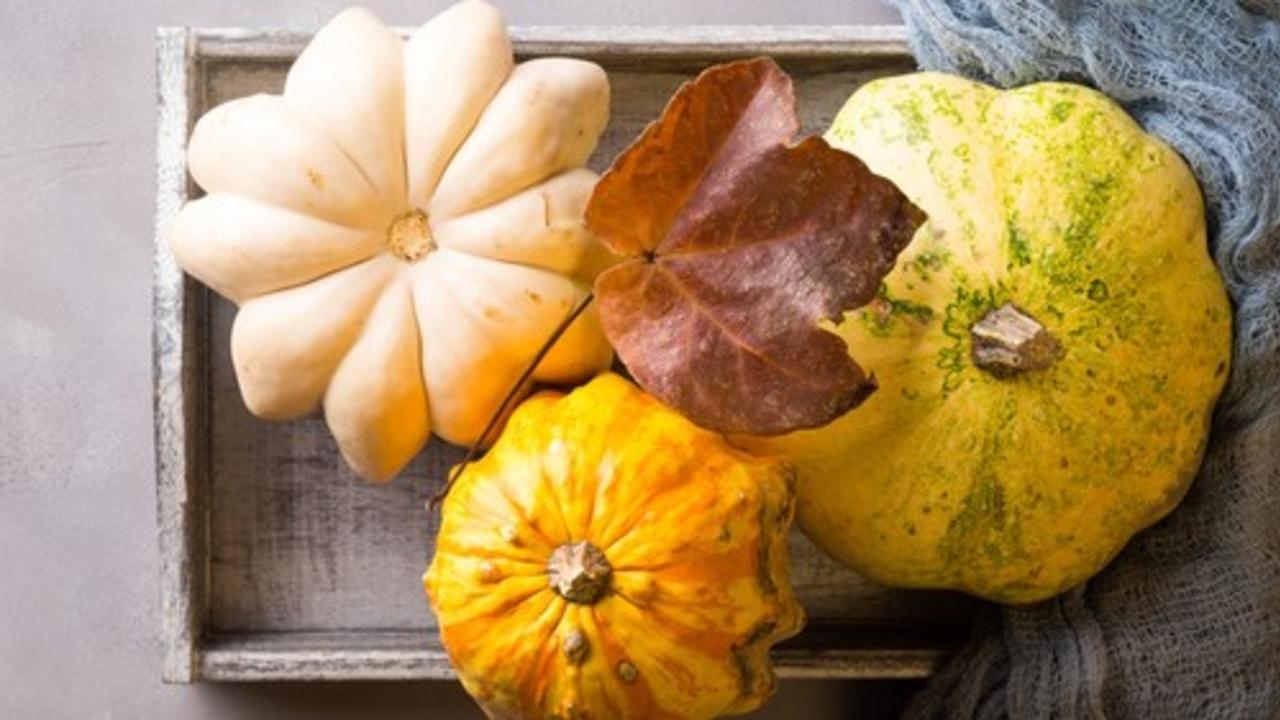The Right and Wrong Time to Eat
Hunger becomes a problem when agni (our digestive fire) is calling for food at the wrong times because this is a fast way to collect ama (toxins) and gain weight.
Let's say we skip breakfast but then at 9:30 a.m. we're starving, so then we bring on the pancakes, and the bacon, and the sausages, and the oatmeal, and the coffee, and the orange juice. You get my drift! You have a big breakfast.
What happens when noon comes around? Are you hungry? No. But then at 2:30 p.m. agni's like, "Hey, I'm hungry!" So you have a late lunch at 2:30 because your breakfast was late.
Then, are you hungry at 6 o'clock at night? No, because you had a really late lunch. Maybe you're not hungry until 8 or 8:30 p.m. and you have dinner then.
That's too late.
Those times are all wrong, but agni's calling for food because we didn't eat at the right times according to the clock. Making sense?
We want to eat at the right time. Otherwise we are not in harmony with the heating/digestive energy of the sun!...
Gratitude Party!

Any time is the perfect time for a little gratitude, let's bring it to the party!
Our bajillion blessings far outnumber the not-so-great things (sometimes we give these too much air time!). Writing them out helps us really feel the abundance that surrounds us on a daily basis!
Print one for your eyes only, or print out a bunch to share at Thanksgiving and everyone can fill out their trees! Hang them up or have each person talk about their 3 favorites. Heck, turn it into one big gratitude party! That's what Thanksgiving is bout afterall!
Page 1 - Write what you are grateful for in the circles, can you fill up the tree?
Page 2 - Write WHY you are grateful for each of them
>>GET YOUR GRATITUDE TREE HERE<<
The most important part is to connect to what you've been blessed with and WHY.
Even in the most challenging times, we are gaining perspective and wisdom and we can be grateful for the path. Even if we are feeling a little powerless, gratitude for the struggle is a powerful messag...
5 Healthy Digestion Tips for Thanksgiving {Based on Ayurveda}

If you prefer, check out the Video HERE: 5 Healthy Digestion Tips for Thanksgiving {Based on Ayurveda}
For us Americans, it's Thanksgiving this week!
*parade* *family & friends* *good food*
For the non-Americans, these digestion tips will apply to any celebration that includes a big family/friends gathering and a feast.
In Ayurveda, what we eat is not nearly as important as how we digest we eat.
Meaning, we can pop anything into our mouth but our body might not digest the food that well. For example, we eat a salad and instantly feel bloated, or the jam-packed burrito sits in our gut like a rock, or the spicy chicken wings leave a burning discomfort in our chest.
If our body does not digest the food properly, it doesn't nourish our body properly, which is the whole point of eating. The goal of a celebration is to be with friends and family while sharing a meal, good laughs and creating good memories together — It's not to spend a day slipping into a food coma and taxing our dige...
The Best Exercise for your Dosha
My friends, for those of you who feel consistently sluggish, moving your body is the key to get energized. We are not meant to sit for hours on end in front of a computer or tv - it's just not natural! Since we are little beings of nature so we need to move, sweat, and tone our bodies.
Moving is essential to keep disease and sickness away (immunity booster) and it tones all the tissues of the body. Food and exercise are the building blocks for the physical body. So if we're only doing one of those things right, we are only half way. That said, I know it can be frustrating when you know you need to do some sort of exercise, but you're not sure exactly what is best for you. But that's what I'm here for!
Since Ayurveda is individualized, each dosha does better with certain exercises.
Not sure of your dosha yet? Take the quiz.
Exercises for vata
Vatas, you need to slow down. Slooooooooooow dooooooowwwwwn. Okay, even slower. ;) Because vata is so wiggly, windy, scattered, and variable...
6 Ayurvedic Tips to Survive the Time Change

It's dark at dinner time now! It's easy to "hooray!" for an extra hour of sleep and "hooray!" because it's easier to wake up. But it's more than just a switch of an hour.
Time change in Ayurveda affects vata (energy of movement) because, well, we've made a fast change. *Poof* just like that, we gained extra sunlight in the morning and lost it at night. It can take some of us weeks to adjust but the 6 Ayurvedic tips below will help you slide back nicely into nature's rhythm quickly.
6 Ayurvedic Tips to Survive the Fall Time Change
1. Wake up before sunrise. For those of you who are not a super-fan of this highly effective ayurvedic recommendation, your opportunity is GOLDEN right now! This should be easy! Of all times of year to start practicing, now's the time. Waking before the sun as a daily habit, gives us an extra energy boost because we rise in the energy of vata, the energy of movement, which keeps us going all day long! If we wait until the sun comes up, we rise in the energ...
5 Ayurvedic Tips For Sound Sleep
Why do we need good sleep anyway? Who cares?
Well! Not getting enough sleep is very vata increasing. When vata, the energy of movement, is increased we can end up with all kinds of health problems. Our minds might have problems focusing, we might have extra anxiety or worry. We might be super forgetful or even be a little bit clumsy. We might have emotional instability which keeps us swinging swiftly on the pendulum of emotions and short fuses. We might get constipation, have poor digestion or severe digestive issues, and the list goes on. If we get to the root cause of all these wonky problems, it could be that we're just chronically tired.
Sleeping rejuvenates the body and it is absolutely necessary to get enough. We need rest and rejuvenation, because we spend full days doing stuff constantly with our bodies and our minds. If we don't give ourselves high quality sleep time, we will totally break down.
Here are 5 of my favorite tips to help you guys sleep soundly.
1) Turn off the...
5 Reasons to Include Oils in Your Diet and On Your Skin
You might be wondering why Ayurveda uses oils so much and talks about oils so much. Well, I've got five tips for you on why you it's a good idea to use oils on our insides and on our outsides.
Below are 5 Reasons to Include Oils in Your Diet and On Your Skin
1) Use oils in food because it lubricates our insides. One of the ways we prevent disease is to avoid getting very dry and brittle because then the body breaks down. Oils help prevent that breakdown as it seeps into our deepest tissues. Oils get digested and they actually turn into nourishment for all of our seven tissues (or, seven dhatus in Ayurveda). They help keep the inside of the body nice and stretchy, pliable, smooth, and unctuous. Oils bring a nice heaviness too, because we want our bodies to stay warm, and supple, and flexible.
If you are a vata person, you will need some extra oils in your diet. In fact, oil is vata's number one food because vatas are so dry. Make sure to cook with it. Olive oil is great. Coconut oi...
5 Simple Ways to Overcome Overwhelm
*warning! When I filmed this, I was feeling overwhelmed myself, hence, the quick entry into my crazy breathing. haha!*
Transcription below
Have you ever been in a situation where you're humming along, feeling really good, taking on projects, and then all of a sudden, *WHAM!*
You're hit with this overwhelm of, "Oh my gosh. I just said yes to all these things. I have so much other stuff that I have to do. And now I'm kind of paralyzed in not knowing what to do first, or how to get out from under this. I feel so panicked that I feel like I want to move really fast, but I actually feel stricken, like I can't move at all."

I've got 5 tips that can help you overcome that feeling of overwhelm.
The fix starts with our breath and our mind because, really, we're not physically sitting underneath a pile of overwhelming stuff. Our mind is going and going and going, and telling us, "Oh my gosh. We have so much to do!" But the pile is not physically there so we need to set our mind free and cle...
Oil-pulling, you ask?

Oil-pulling is getting all kinds of attention and several folks ping'ed me to find out what the dealio is. Unless the info comes from a trusted Ayurvedic source, it can be hard to know what to believe.
I'll make oil pulling simple and trusted.
There are two daily practices in Ayurveda to help nourish and purify the mouth:
1) Gandusa (filling the mouth with oil and holding it)
2) Kavalagraha (swishing oil slowly between the teeth and gargling = oil-pulling). The ancient texts call for sesame oil, but you can also use ghee or coconut oil for high pitta types. When I searched online, all the recommendations I found call for coconut oil (from non-Ayurvedic sites)...and that worries me because it might not be the best for everyone.
Since I was concerned about wrong messaging and also certain that sesame is the oil of choice (I like to worry and be right = vata-pitta), I emailed my dear trusted teacher to be sure:
My dear trusted teacher (I can't share his name cause last time ya'...
8 Simple Ways to Get Rid of Toxins
Toxins are created by old food but not solely food. As with all things in Ayurveda, emotions, stressors, lifestyle and environment (all connected) also play a huge role in how we digest. Digestion is food, yes. But digestion also includes all information we absorb with the five senses, taste being only one of them. When doshas are imbalanced due to lifestyle, diet, negative emotions, etc., agni’s function becomes weakened or disturbed and it leaves undigested food behind.
This undigested food turns into ama (AH-muh), which is a toxic, sticky, cloudy and smelly substance that can spread from the gastrointestinal tract to other parts of the body. From there it can lodge itself into crevices causing clogs in channels, blood vessels and cell membranes. Yum!
It sounds complicated and difficult to get ama, but it’s kind of easy if we’re not paying attention. How many times have we eaten on the go, while working, during an intense conversation, or while nervous? How many times have we gone ...

